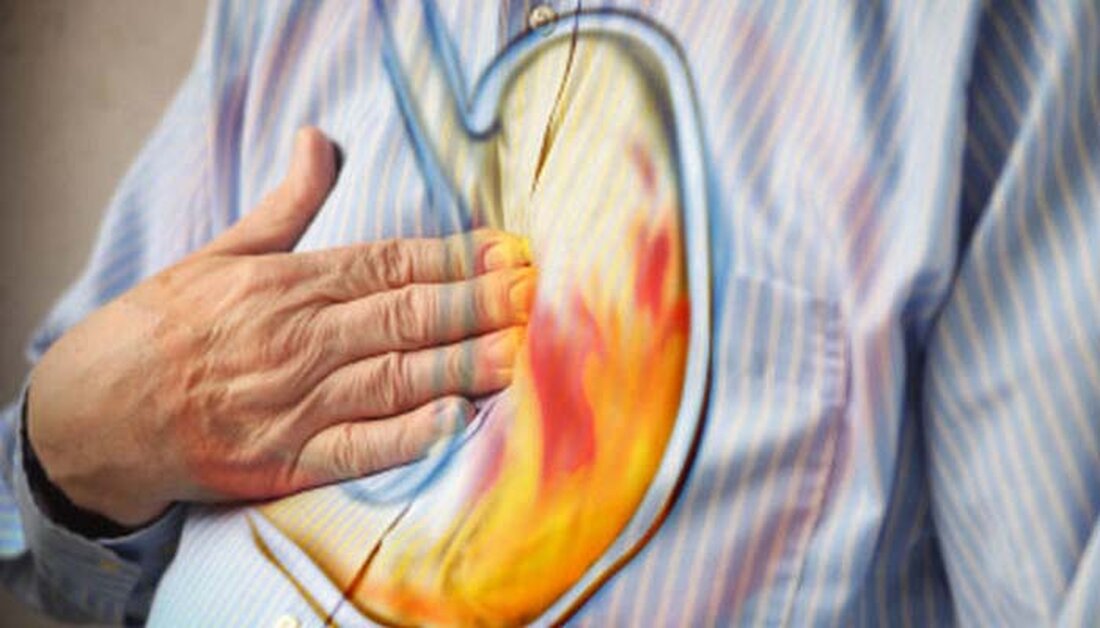How to treat heartburn symptoms
Heartburn, or acid indigestion, is a burning sensation in the center of the chest that gets worse when you bend over or lie down. It usually occurs after eating and at night. It is caused by reflux. Reflux occurs when stomach acid builds up in your esophagus (esophagus), causing inflammation. It is considered an illness if you have symptoms more than twice a week. Gastroesophageal reflux disease (GERD) is a digestive condition in which stomach acid leaks into the esophagus due to a weakening of the muscle where the esophagus ends and your stomach begins. GERD often disrupts the...

How to treat heartburn symptoms
Heartburn, or acid indigestion, is a burning sensation in the center of the chest that gets worse when you bend over or lie down. It usually occurs after eating and at night. It is caused by reflux. Reflux occurs when stomach acid builds up in your esophagus (esophagus), causing inflammation. It is considered an illness if you have symptoms more than twice a week.
Gastroesophageal reflux disease (GERD) is a digestive condition in which stomach acid leaks into the esophagus due to a weakening of the muscle where the esophagus ends and your stomach begins. GERD often disrupts routine daily activities and causes damage to your esophagus.
Symptoms include heartburn, vomiting or spitting up blood, bitter taste in the mouth, burning in the chest pain, dry cough, sore throat, painful swallowing and a hoarse voice.
Complications of GERD include scarring in the esophagus, bleeding in the stomach or esophagus, and ulceration in the esophagus or stomach. Risk factors for GERD include spicy food or
hot foods, alcohol, soda, caffeine, fatty foods, gaseous foods (certain vegetables), pregnancy, obesity, smokers, and those with abdominal hernias.
Treatment for GERD includes the following:
Antacids help neutralize the acids in your stomach, but do not treat inflammation of the esophagus. Excessive use can cause constipation and diarrhea.
Gaviscon
Tums
Maalox
Mylanta
Rolaids
Histamine-2 (H2) blockers reduce acid production in the stomach. May not be as good for treating esophagitis (inflammation that occurs in the esophagus). Histamine stimulates acid production, especially after meals. Therefore, H2 blockers are best taken 30 minutes before meals. They can also be taken before bed to suppress nighttime acid production. Examples of prescription H2 blockers:
Nizatidine (Axide)
Famotidine (Pepcid)
Cimetidine (Tagamet)
Ranitidine (Zantac)
These medications are useful for relieving heartburn, but may not be as good for treating esophagitis (inflammation that occurs in the esophagus). Side effects may include headache, stomach pain, diarrhea, nausea, gas, sore throat, runny nose, and dizziness.
Proton pump inhibitors (PPIs) are medicines that block acid production more effectively and for longer than the H2 blockers. PPIs are best taken one hour before meals. They include:
Rabeprazole (Aciphex)
Esomeprazole (Nexium)
Lansoprazole (Prevacid)
Omeprazole (Prilosec, Zegerid)
Pantoprazole (Protonix)
Dexlansoprazole (Dexilant)
Many doctors do not believe that one drug is more effective than the others in treating GERD. These medications are also good for protecting the esophagus from acid so that inflammation of the esophagus can heal. Side effects can include headache, diarrhea, abdominal pain, bloating, constipation, nausea, and gas.
Home care
Avoid eating foods and drinks that trigger heartburn. Greasy or fried foods, tomato sauce, alcohol, chocolate, mint, garlic, onions, citrus fruits (pineapple, strawberries), vinegar, foods that can cause gas (peppers, cabbage), and caffeine can make heartburn worse. Don't eat too much. Try eating smaller, more frequent meals. Do not lie down after eating and wait 2 to 3 hours after eating before lying down or bending over. Raise the head of your bed. Do not smoke. Avoid medications that may irritate your stomach, such as NSAIDs (aspirin, Aleve, ibuprofen). Weight loss can help reduce abdominal pressure and force acid into the esophagus. Avoid wearing tight clothing
See a doctor if symptoms occur more than 2 times per week, and over-the-counter medications will not help if you have difficulty swallowing, nausea, vomiting, or weight loss.
Inspired by Lizet Leon

 Suche
Suche
 Mein Konto
Mein Konto
